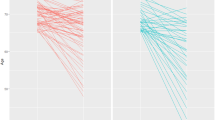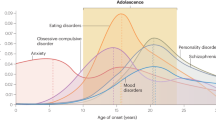Abstract
Background
There is growing evidence that nutritional interventions in the first 1000 days of life may influence long-term health and development outcomes. Few studies have examined the effect of maternal and infant micronutrient supplementation on development outcomes in sub-Saharan Africa.
Methods
We conducted a follow-up study of two randomized trials of antenatal and infant micronutrient supplementation conducted in Dar es Salaam, Tanzania. We assessed the effect of maternal multiple micronutrient (MMN) supplementation in pregnancy on development of children at 11–14 years of age. We also examined the effect of infant zinc and MMN supplementation on development at 6–8 years of age. We used generalized linear models to assess standardized mean differences (SMDs) in general intelligence, executive function, and mental health scores.
Results
We followed up 446 children whose mothers were enrolled in the maternal MMN supplementation trial and 365 children who were enrolled in the infant zinc and MMN supplementation trial. We found no effect of maternal MMN supplementation on general intelligence (SMD: −0.03; 95% CI: −0.15, 0.09), executive function (SMD: 0.00; 95% CI: −0.11, 0.11), and mental health scores (SMD: 0.06; 95% CI: 10.10, 0.22). We also found no effect of either infant zinc or MMN supplementation on any of the three development domains (p-values > 0.05).
Conclusions
We found that antenatal MMN supplementation and infant zinc and MMN supplementation did not have a large effect on development outcomes in middle childhood and early adolescence in Tanzania.
This is a preview of subscription content, access via your institution
Access options
Subscribe to this journal
Receive 12 print issues and online access
$259.00 per year
only $21.58 per issue
Buy this article
- Purchase on Springer Link
- Instant access to full article PDF
Prices may be subject to local taxes which are calculated during checkout

Similar content being viewed by others
References
Lu C, Black MM, Richter LM. Risk of poor development in young children in low-income and middle-income countries: an estimation and analysis at the global, regional, and country level. Lancet Glob Health. 2016;4:e916–e22.
Black MM, Walker SP, Fernald LCH, Andersen CT, DiGirolamo AM, Lu C, et al. Early childhood development coming of age: science through the life course. Lancet. 2017;389:77–90.
Fink G, Peet E, Danaei G, Andrews K, McCoy DC, Sudfeld CR, et al. Schooling and wage income losses due to early-childhood growth faltering in developing countries: national, regional, and global estimates. Am J Clin Nutr. 2016;104:104–12.
Peet ED, McCoy DC, Danaei G, Ezzati M, Fawzi W, Jarvelin MR, et al. Early childhood development and schooling attainment: longitudinal evidence from British, Finnish and Philippine birth cohorts. PLoS ONE. 2015;10:e0137219.
Sudfeld CR, McCoy DC, Danaei G, Fink G, Ezzati M, Andrews KG, et al. Linear growth and child development in low- and middle-income countries: a meta-analysis. Pediatrics. 2015;135:e1266–75.
Veena SR, Gale CR, Krishnaveni GV, Kehoe SH, Srinivasan K, Fall CH. Association between maternal nutritional status in pregnancy and offspring cognitive function during childhood and adolescence; a systematic review. BMC Pregnancy Childbirth. 2016;16:220.
Borge TC, Aase H, Brantsaeter AL, Biele G. The importance of maternal diet quality during pregnancy on cognitive and behavioural outcomes in children: a systematic review and meta-analysis. BMJ Open. 2017;7:e016777.
Zhu Z, Cheng Y, Zeng L, Elhoumed M, He G, Li W, et al. Association of antenatal micronutrient supplementation with adolescent intellectual development in rural Western China: 14-year follow-up from a randomized clinical trial. JAMA Pediatr. 2018;172:832–41.
Dulal S, Liegeois F, Osrin D, Kuczynski A, Manandhar DS, Shrestha BP, et al. Does antenatal micronutrient supplementation improve children’s cognitive function? Evidence from the follow-up of a double-blind randomised controlled trial in Nepal. Lancet Glob Health. 2018;3:e000527.
Christian P, Murray-Kolb LE, Khatry SK, Katz J, Schaefer BA, Cole PM, et al. Prenatal micronutrient supplementation and intellectual and motor function in early school-aged children in Nepal. JAMA. 2010;304:2716–23.
Prado EL, Sebayang SK, Apriatni M, Adawiyah SR, Hidayati N, Islamiyah A, et al. Maternal multiple micronutrient supplementation and other biomedical and socioenvironmental influences on children’s cognition at age 9-12 years in Indonesia: follow-up of the SUMMIT randomised trial. Lancet. Glob Health. 2017;5:e217–e28.
Gogia S, Sachdev HS. Zinc supplementation for mental and motor development in children. Cochrane Database Syst Rev. 2012;12:Cd007991.
Fawzi WW, Msamanga GI, Urassa W, Hertzmark E, Petraro P, Willett WC, et al. Vitamins and perinatal outcomes among HIV-negative women in Tanzania. N Engl J Med. 2007;356:1423–31.
McDonald CM, Manji KP, Kisenge R, Aboud S, Spiegelman D, Fawzi WW, et al. Daily zinc but not multivitamin supplementation reduces diarrhea and upper respiratory infections in Tanzanian infants: a andomized, double-blind, placebo-controlled clinical trial. J Nutr. 2015;145:2153–60.
Winje BA, Kvestad I, Krishnamachari S, Manji K, Taneja S, Bellinger DC, et al. Does early vitamin B12 supplementation improve neurodevelopment and cognitive function in childhood and into school age: a study protocol for extended follow-ups from randomised controlled trials in India and Tanzania. BMJ Open. 2018;8:e018962.
Institute of Medicine Standing Committee on the Scientific Evaluation of Dietary Reference Intakes. Dietary reference intakes for thiamin, riboflavin, niacin, vitamin B6, folate, vitamin B12, pantothenic acid, biotin, and choline. Washington, DC: National Academies Press; 1998.
Holding P, Anum A, van de Vijver FJR, Vokhiwa M, Bugase N, Hossen T, et al. Can we measure cognitive constructs consistently within and across cultures? Evidence from a test battery in Bangladesh, Ghana, and Tanzania. Appl Neuropsychol Child. 2018;7:1–13.
Smith ER, Shankar AH, Wu LS, Aboud S, Adu-Afarwuah S, Ali H, et al. Modifiers of the effect of maternal multiple micronutrient supplementation on stillbirth, birth outcomes, and infant mortality: a meta-analysis of individual patient data from 17 randomised trials in low-income and middle-income countries. Lancet Glob Health. 2017;5:e1090–e100.
Black MM. Effects of vitamin B12 and folate deficiency on brain development in children. Food Nutr Bull. 2008;29(Suppl):S126–31.
Thomas S, Thomas T, Bosch RJ, Ramthal A, Bellinger DC, Kurpad AV, et al. Effect of maternal vitamin B12 supplementation on cognitive outcomes in South Indian children: a randomized controlled clinical trial. Matern Child Health J. 2018 https://doi.org/10.1007/s10995-018-2605-z. [Epub ahead of print].
Romero R, Chaiworapongsa T, Espinoza J. Micronutrients and intrauterine infection, preterm birth and the fetal inflammatory response syndrome. J Nutr. 2003;133:1668S–73S.
Shenkin SD, Starr JM, Deary IJ. Birth weight and cognitive ability in childhood: a systematic review. Psychol Bull. 2004;130:989–1013.
Twilhaar ES, Wade RM, de Kieviet JF, van Goudoever JB, van Elburg RM, Oosterlaan J. Cognitive outcomes of children born extremely or very preterm since the 1990s and associated risk factors: a meta-analysis and meta-regression. JAMA Pediatr. 2018;172:361–7.
Mayo-Wilson E, Junior JA, Imdad A, Dean S, Chan XH, Chan ES, et al. Zinc supplementation for preventing mortality, morbidity, and growth failure in children aged 6 months to 12 years of age. Cochrane Database Syst Rev 2014: Cd009384.
Niehaus MD, Moore SR, Patrick PD, Derr LL, Lorntz B, Lima AA, et al. Early childhood diarrhea is associated with diminished cognitive function 4 to 7 years later in children in a northeast Brazilian shantytown. Am J Trop Med Hyg. 2002;66:590–3.
Walker CLF, Lamberti L, Adair L, Guerrant RL, Lescano AG, Martorell R, et al. Does childhood diarrhea influence cognition beyond the diarrhea-stunting pathway? PLoS ONE. 2012;7:e47908.
Larson LM, Yousafzai AK. A meta‐analysis of nutrition interventions on mental development of children under‐two in low‐and middle‐income countries. Matern Child Nutr. 2017;13 https://doi.org/10.1111/mcn.12229.
Kvestad I, Taneja S, Kumar T, Hysing M, Refsum H, Yajnik CS, et al. Vitamin B12 and folic acid improve gross motor and problem-solving skills in young North Indian children: a randomized placebo-controlled trial. PLoS ONE. 2015;10:e0129915.
Hajcak G, MacNamara A, Olvet DM. Event-related potentials, emotion, and emotion regulation: an integrative review. Dev Neuropsychol,. 2010;35:129–55.
Duncan CC, Barry RJ, Connolly JF, Fischer C, Michie PT, Naatanen R, et al. Event-related potentials in clinical research: guidelines for eliciting, recording, and quantifying mismatch negativity, P300, and N400. Clin Neurophysiol. 2009;120:1883–908.
Acknowledgements
We would like to thank Muhimbili University of Health and Allied Sciences for their continued support of our research and for allocating special space for the development assessments. We also thank Melba Golmes, Charles Makasi, and the East African Development Tool team for allowing us to use components of the tool and Hadija Nangaboi for leading the training on these assessments. We also thank Dr. Srinivasan Krishnamachari and his team at St. John’s Research Institute for guidance and training on the Verbal Fluency and Kohs Block Design Test. We thank the Research Assistants at MUHAS including Sr. Juliana Mghamba, Sr. Agnes Obedi, Sr. Anna Fundi, Sr. Celestina Kagunila and Sr. Veneranda Ndesangia and sociologists Alice Mabugo and Leah Sabasi. We also thank Mohamed Bakari for developing and maintaining the data system for the study. Finally, we thank the parents and children for their continued participation in the two trials.
Funding
The development follow-up study was funded by the Norwegian Research Council Grant number 234495. The parent randomized trials were funded by the Eunice Kennedy Shriver National Institute of Child Health & Human Development (NICHD) (R01 37701 and R01 HD048969-01). CPD was supported by K24DK104676 and P30 DK040561.
Author contributions
WWF, CPD, and KPM were the Principal Investigators of the parent trials. WWF, CPD, KPM, and RK contributed to conduct of the parent trials. TAS, IK, MH WWF, CPD, and KPM designed the development follow-up study and obtained funding. KPM, RK, IK, MH, DCM, TAS, CPD, and WWF were involved in the adaptation and training of the development tool assessments used in the follow-up study. KPM and RK led field implementation of the follow-up study. CRS and AMD conducted the statistical analysis. CRS drafted the initial manuscript. All authors made significant contributions to editing the manuscript and all approved of the final manuscript for submission.
Author information
Authors and Affiliations
Corresponding author
Ethics declarations
Conflict of interest
The authors declare that they have no conflict of interest.
Additional information
Publisher’s note: Springer Nature remains neutral with regard to jurisdictional claims in published maps and institutional affiliations.
Supplementary information
Rights and permissions
About this article
Cite this article
Sudfeld, C.R., Manji, K.P., Darling, A.M. et al. Effect of antenatal and infant micronutrient supplementation on middle childhood and early adolescent development outcomes in Tanzania. Eur J Clin Nutr 73, 1283–1290 (2019). https://doi.org/10.1038/s41430-019-0403-3
Received:
Revised:
Accepted:
Published:
Issue Date:
DOI: https://doi.org/10.1038/s41430-019-0403-3



